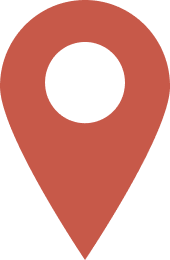SoilStack is an open source, cross platform app designed to support smart agricultural and environmental sampling, capturing patterns of spatial variability and guiding users through in-field collection in a transparent, replicable, and user-friendly way.

Market applications use SoilStack to determine where to collect soil samples, balance high confidence soil carbon stock quantification with reduced sampling costs and to track sampling metadata in a transparent toolchain.
Soil health can vary greatly at small scales across the landscape. SoilStack processes publicly available data to determine where to conduct soil health research in order to optimize statistical power with sampling cost efficiency.
Get more from your soil samples. Whether composite sampling or sampling by zone, SoilStack makes it easy to generate smart sampling locations based on field variability and to navigate to those spots.
Users can import areas of interest (AOIs) using our API or draw boundaries directly in the app. Already have area boundaries in another program or a specific file type? We’ll support you in getting your AOIs into SoilStack.
Area size can range from plots of a few acres to fields covering tens to hundreds of acres to landscapes spanning hundreds or thousands of acres.
Data deepens our understanding about AOIs and drives better decisions about where to sample. However, fetching, clipping, and processing public data layers can be difficult and time consuming.
For soil carbon projects SoilStack automatically processes NDVI, slope, clay, and organic matter data layers for the AOI.
Our team can help identify the public layers best suited to your goals and automate processing of those layers.
Once the data layers are processed, our automated service uses a clustering algorithm to develop unique zones or strata in the AOI based on the patterns of spatial variability in the imported data layers. Within each zone or stratum the optimal sampling locations are chosen to account for in-zone variability.
We can help evaluate proper sampling densities to achieve your project goals and customize sampling plans to help fit your needs and budget.
Determining where to sample is just the first step. SoilStack provides directions to navigate to each sampling location and the user-friendly interface guides samplers through the full in-field sampling experience.
The app works in areas with no cellular reception or network connectivity, guiding samplers to each sampling point.
Trust and transparency are bedrocks of ecosystem service accounting. SoilStack improves transparency by capturing key sampling data and metadata.
At each sampling location, the app captures key metadata such as timestamp and GPS location. Our QR code scanner makes it easy to scan sample bag IDs. Once sampling is complete, a lab inventory is generated to make tracking samples throughout the lab analysis process effortless.
SoilStack’s administrative tools help project managers keep track of sampling projects. Users can display all AOIs on a map, sort and filter by project status, and track progress of sampling activities. Additionally, you can control which users within your project have access to view each AOI and its sampling details.
To start creating sample plans, email us at info@soilstack.io or share your contact information and someone from our team will get in touch with you.



© 2022 soilstack.io